Table of Contents
You've probably seen the hype: glowing skin, boundless energy, and a total body reset, all thanks to celery juice. But is it truly a miracle drink, or just another fad? We're here to cut through the noise and explore the reality behind celery juice cleanses. This article will be your guide, as we explore the world of celery juice and its supposed detox powers. We'll break down what a cleanse actually is, and if it's safe to put all your trust in celery juice. You'll learn if it really works to flush out toxins, or if your body is already doing a fine job on its own. We'll also look at the potential good stuff – and the real risks – of hopping on the celery juice train. Are those claims of glowing health legit? Or are you better off sticking to a balanced diet? We'll also show you how to juice the right way (if you decide to try it), and what nutrients you're actually getting. By the end, you'll have a clear picture of whether the claims about "celery juicing detox symptoms" are worth the fuss, or just a bunch of greenwash. So, let's get started, and discover the truth about celery juice!
What's the Deal with a Cleanse?
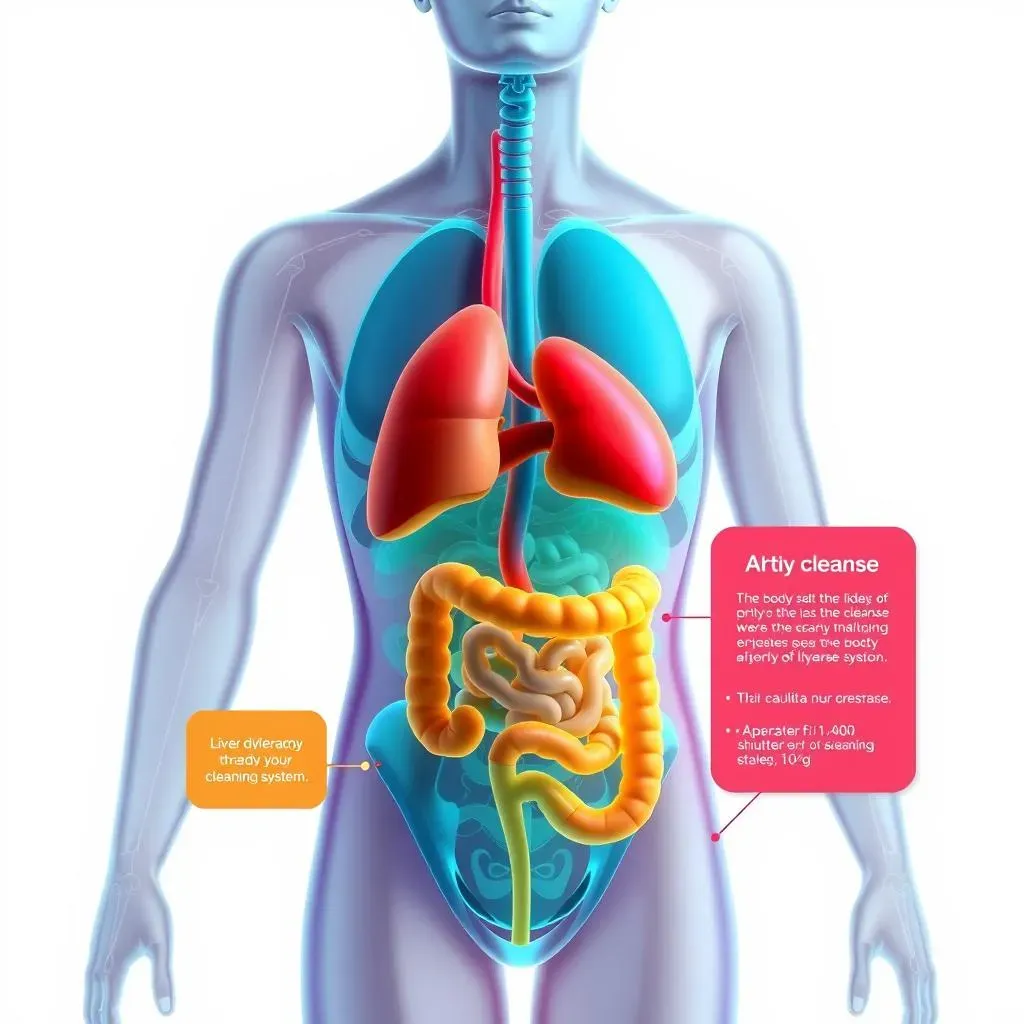
What's the Deal with a Cleanse?
Okay, so you're hearing all this buzz about "cleanses," right? It's like a magic word that makes people think they can instantly get rid of all the junk in their bodies. The basic idea behind a cleanse, especially the juice kind, is that you're cutting out certain foods, or sometimes all solid foods, to give your digestive system a break. The thinking is that this pause allows your body to finally kick out all those "toxins" that have been supposedly building up. People often try a cleanse to lose weight, feel more energetic, or even clear up skin problems. It's like hitting a reset button, or so they say. But here's the thing: your body already has its own super-efficient cleaning crew – your liver, kidneys, and intestines. They're working 24/7 to filter out waste. So, is a cleanse really necessary, or are we just buying into a fancy marketing ploy?
Body Part | Function | How It Cleans |
|---|---|---|
Liver | Filters blood | Breaks down toxins and waste products |
Kidneys | Filters blood | Removes waste through urine |
Intestines | Processes food | Eliminates solid waste |
Is Celery Juice a Safe Way to Detox?
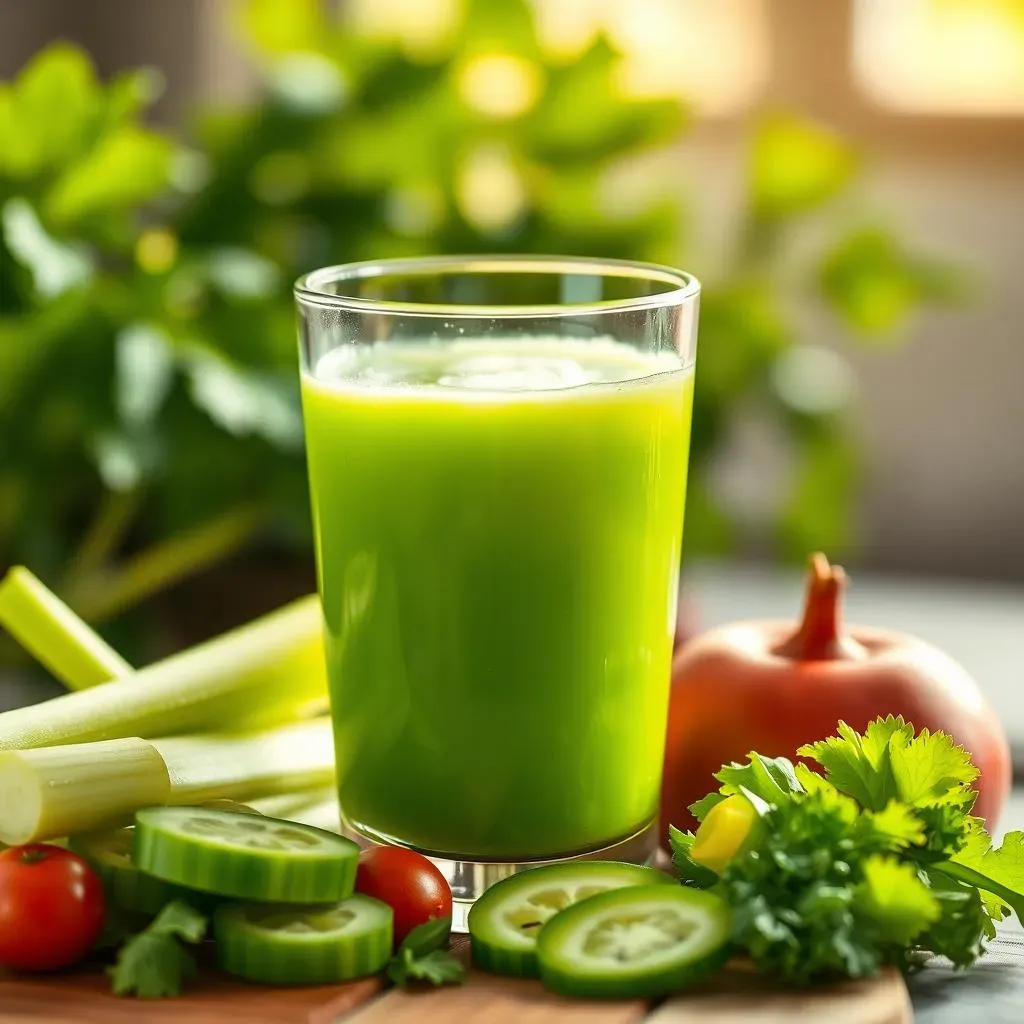
Is Celery Juice a Safe Way to Detox?
The Allure of a Quick Fix
Okay, so now we're at the big question: is celery juice actually a safe way to "detox"? It’s tempting to think that downing a bunch of green juice will magically erase all our dietary sins, but let's be real. The idea of a quick fix is super appealing, especially when we're bombarded with images of people looking their absolute best while sipping on something green. The truth is, though, our bodies are not like a clogged drain that needs a special liquid to flush it out. Sure, celery is a vegetable, and vegetables are good for us, but does that make it a detox superhero? That's what we're going to figure out.
The Problem with Juicing
Here's a crucial point: when you juice celery, you're losing a big part of what makes it good for you – the fiber. Fiber is like the broom for your digestive system; it helps keep things moving smoothly. Without it, you're just getting the liquid part, which, while containing some vitamins and minerals, isn't the whole package. Plus, some folks might find that suddenly adding a ton of celery juice to their diet can lead to some unpleasant side effects like bloating, gas, or even diarrhea. It's not exactly a pleasant "detox" experience, is it? And, let's not forget that some people are actually allergic to celery, which can cause itching, swelling, and difficulty breathing. So, "safe" is definitely relative here.
Celery Form | Fiber Content | Nutrient Retention | Potential Side Effects |
|---|---|---|---|
Whole Celery | High | Full | Minimal, unless allergic |
Celery Juice | Low | Reduced | Possible bloating, gas, diarrhea, allergic reactions |
Listen to Your Body
Ultimately, your body is pretty smart. It’s designed to handle toxins all on its own. If you're thinking about using celery juice as a "detox," it's important to listen to what your body is telling you. If you start feeling unwell, it's a sign that something isn't right. Don’t just blindly follow the hype. There's no one-size-fits-all approach to health. Instead of focusing on a quick fix like a celery juice detox, maybe focus on eating a balanced diet with lots of whole foods, getting enough sleep, and finding ways to manage stress. These are the things that will actually make a difference in the long run. And if you are going to try it, start slow and pay attention to how you feel. Your body will be the best guide.
Does Celery Juice Really Work for Detox?

Does Celery Juice Really Work for Detox?
The Detox Myth
Alright, let's get down to the nitty-gritty. Does celery juice actually live up to the hype as a detoxifier? The idea that it can magically "cleanse" your body of toxins is pretty widespread, but it's important to know that this claim is mostly based on, well, wishful thinking rather than solid science. Your body isn't a dirty sponge that needs a good squeeze to get rid of the gunk. It's a complex system that's constantly working to filter out waste products. The detox industry loves to sell the idea that we're all walking around with a buildup of nasty "toxins" that we need to get rid of, but that's just not how the human body works. So, while celery juice might make you feel good, it's not because it's performing some kind of miraculous detox.
What Science Says
When we look at the science, the picture gets even clearer. There's no real evidence that celery juice can "detoxify" your liver, kidneys, or any other organ. While celery does contain some beneficial compounds, like antioxidants and vitamins, these are also found in other fruits and vegetables. And, as we've already talked about, juicing removes the fiber, which is actually a pretty important part of what makes veggies so good for you. The National Center for Complementary and Integrative Health even states that "there isn't any convincing scientific evidence to support the use of detox diets or cleanses for weight management or eliminating toxins from your body." So, while celery juice might be a healthy addition to your diet, it's certainly not a magic detox potion.
Claim | Scientific Evidence |
|---|---|
Celery juice detoxifies the body. | No scientific evidence to support this claim. |
Celery juice can cure diseases. | No scientific evidence to support this claim. |
Celery juice helps with weight loss. | May lead to initial weight loss, but not a long-term solution. |
Real Benefits, Real Expectations
Look, I'm not saying celery juice is bad for you, it's not. It can be a healthy addition to your diet, if you enjoy it. It's a source of hydration, vitamins, and minerals. But let's not get carried away by the hype. It's important to have realistic expectations. Instead of focusing on some mythical "detox," focus on adding a variety of fruits and vegetables to your diet. Drink plenty of water, get enough sleep, and move your body regularly. These are the things that will actually make a difference in your overall health. So, if you love celery juice, go ahead and drink it, but don't expect it to magically solve all your health problems. And, if you are experiencing symptoms that you think are related to toxins, please consult a doctor rather than turning to a juice cleanse.
Celery Juicing: Potential Benefits and Real Risks

Celery Juicing: Potential Benefits and Real Risks
Alright, let's talk about the good and the bad of celery juice, because it's not all sunshine and green smoothies. Some folks claim that celery juice can reduce inflammation, lower blood pressure, and even fight cancer. These are pretty big promises, right? But it's crucial to take these claims with a grain of salt, because there's not a ton of solid scientific research to back them up. Celery does have some good stuff in it, like antioxidants, vitamins (especially vitamin K), and minerals like potassium. These are all good for your body, but you can get them from eating a variety of fruits and veggies, not just celery. It's like saying that because a car has good tires, it can fly. Good tires are great, but they don't make the car an airplane. Celery is good, but it's not a miracle cure.
Now, let's get to the real risks. Drinking too much celery juice can cause some unpleasant side effects, like bloating, gas, and diarrhea. And, since celery is high in something called oxalates, drinking a lot of celery juice might increase your risk of kidney stones, and that's not fun at all. Also, if you're on certain medications, especially blood thinners, you should definitely talk to your doctor before you start guzzling down celery juice every day, as it can interfere with how these medications work. It's like mixing the wrong paint colors – you might end up with a mess. The key takeaway here is that while celery juice might have some potential benefits, the real risks are worth considering. Don’t let the hype cloud your judgment.
How to Make Celery Juice the Right Way
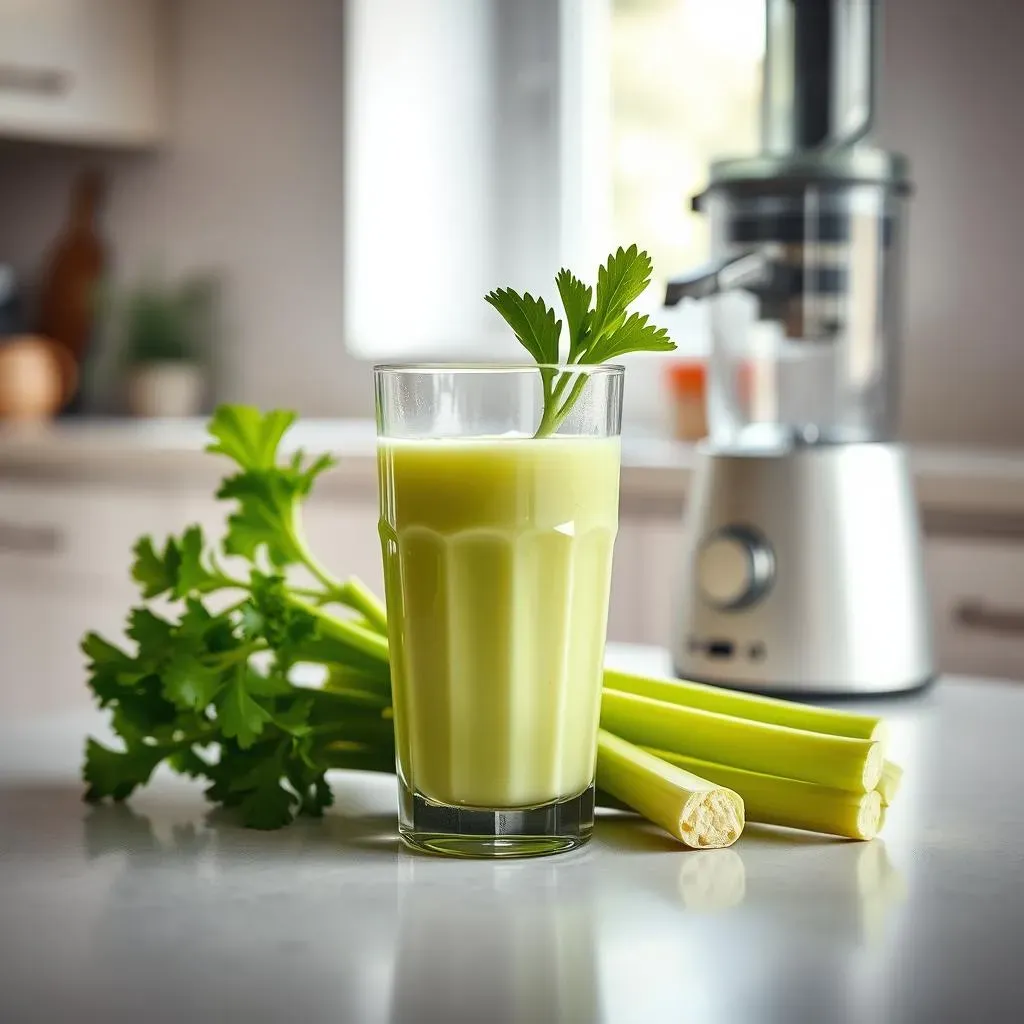
How to Make Celery Juice the Right Way
Okay, so you're still curious about making celery juice? Alright, let’s talk about how to do it properly. It's not rocket science, but there are a few things to keep in mind. First, you'll need some fresh celery. I mean, it's kind of the star of the show, right? Get a bunch, preferably organic, and wash it really well. You don't want any dirt or pesticides ending up in your juice. Next, you'll need a juicer. Now, there are fancy, expensive juicers out there, but you don't need to break the bank. A basic centrifugal juicer will do the job just fine. If you don't have a juicer, you can use a blender, but you’ll need to strain the pulp out afterward. It's a bit more work, but it's doable. The most important thing is to be consistent. Don’t use old celery, that will make your juice taste horrible.
Once you've got your celery and your juicer (or blender), cut the celery into smaller pieces, this will help your machine work more easily. If you are using a juicer, just feed the celery pieces into the machine and let it do its thing. If you're using a blender, add a little water to help it blend smoothly, then once it's all blended, use a cheesecloth or a fine-mesh strainer to remove the pulp. And there you have it, fresh celery juice! It’s best to drink it right away to get the most out of the nutrients. Some folks like to drink it on an empty stomach in the morning, but honestly, you can drink it whenever it fits into your schedule. Start with a small amount to see how your body reacts, and then you can gradually increase it if you want. Remember, consistency is key, so try to make it a regular part of your routine if that's what you want.
Step | Description | Equipment |
|---|---|---|
1 | Wash celery thoroughly | Sink, water |
2 | Chop celery into smaller pieces | Knife, cutting board |
3 | Juice the celery | Juicer or Blender |
4 | Strain the juice (if using a blender) | Cheesecloth or fine-mesh strainer |
5 | Drink immediately | Glass |
Celery Juice Nutrition: What's Really Inside?
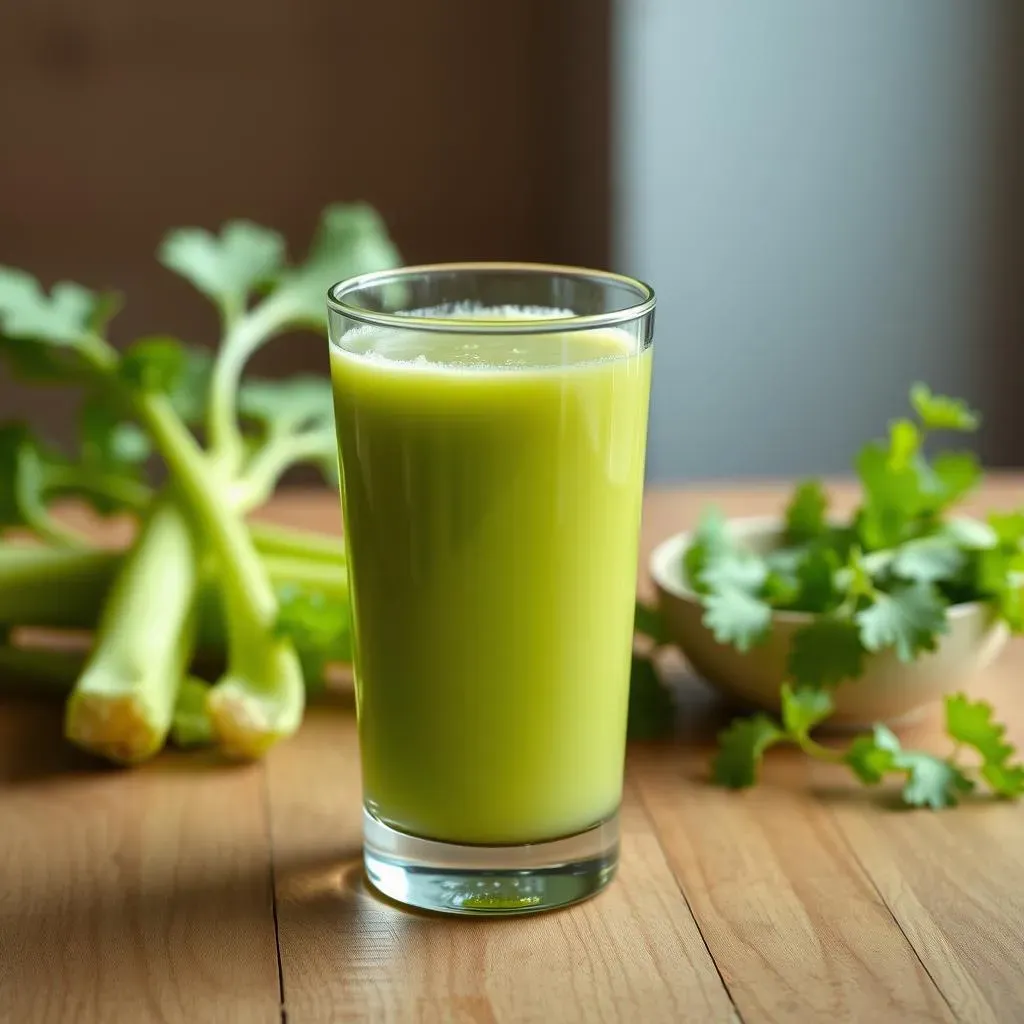
Celery Juice Nutrition: What's Really Inside?
Okay, so we've talked about the hype and the risks, but what about the actual nutrients in celery juice? It's not just green water, you know. Celery does have some good stuff in it. It's a decent source of vitamin K, which is important for blood clotting and bone health. It also contains some vitamin C, which is an antioxidant that helps protect your cells from damage. And it's got a bit of potassium, which helps regulate your blood pressure. Plus, celery contains some folate, which is important for cell growth, and a few other vitamins and minerals in smaller amounts. So, it's not completely devoid of nutrients, but it's also not a nutritional powerhouse like some people make it out to be. Let's be real, you're not going to get all your daily vitamins and minerals from celery juice alone.
It's also important to note that when you juice celery, you're losing the fiber. Fiber is super important for your digestive health, and it helps keep you full and satisfied. So, while you might be getting some vitamins and minerals from the juice, you're missing out on the benefits of fiber. It's like eating a cake without the frosting – it's still cake, but it's not the full experience. Also, the amount of nutrients in celery juice can vary, depending on how fresh the celery is, and how it's processed. So, while it does have some good stuff, it's important to have realistic expectations and not rely on it as your main source of nutrition. Instead, think of it as a small addition to a healthy diet, rather than a miracle elixir.
Nutrient | Benefit | Amount (approx. per 16 oz) |
|---|---|---|
Vitamin K | Blood clotting, bone health | Varies |
Vitamin C | Antioxidant, immune support | Varies |
Potassium | Regulates blood pressure | Varies |
Folate | Cell growth | Varies |
Fiber | Digestive health, satiety | Minimal (lost in juicing) |
The Bottom Line: Is Celery Juice Right for You?
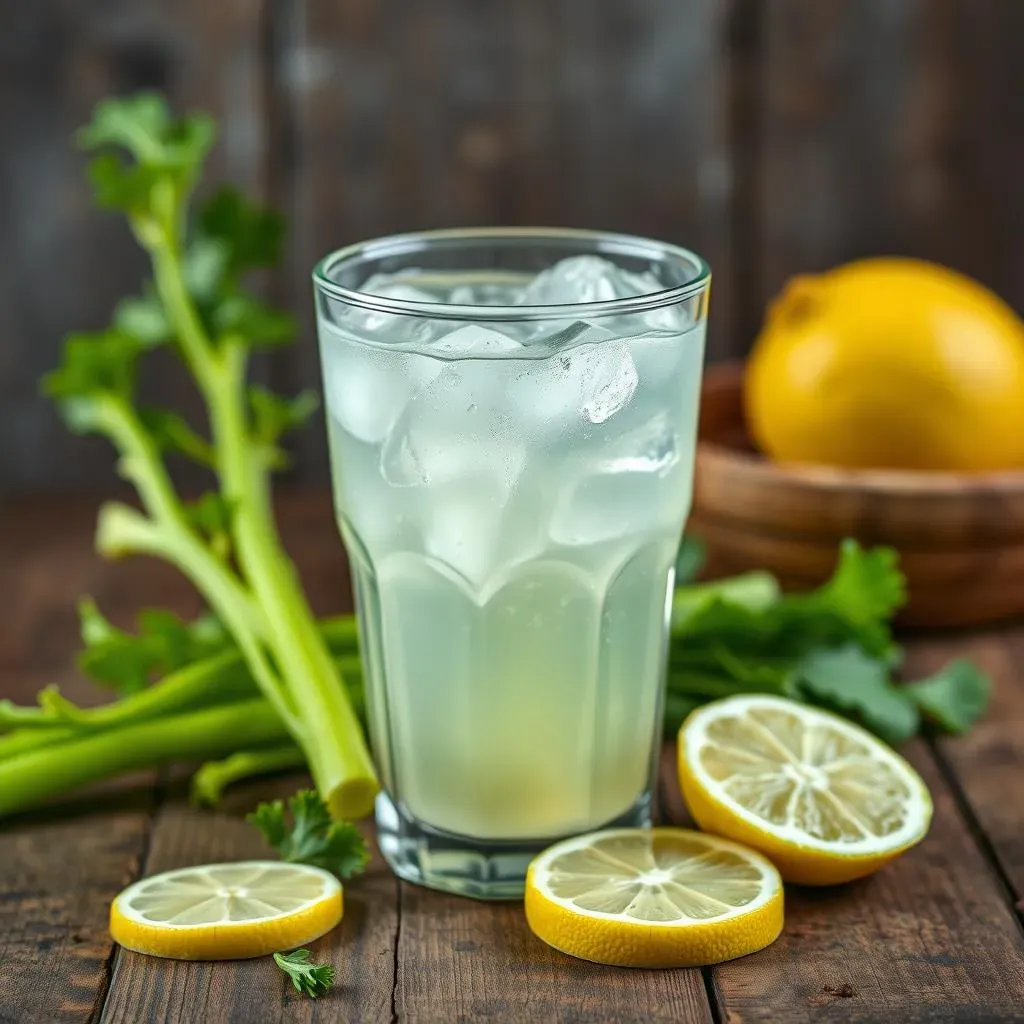
The Bottom Line: Is Celery Juice Right for You?
The Truth About Celery Juice
Okay, let's be real. You've made it this far, so you deserve a straight answer. Is celery juice some kind of magic potion that will transform your health? Probably not. While it's true that celery has some good stuff in it, like vitamins and antioxidants, it's not a miracle cure for all that ails you. The idea that it can "detox" your body is mostly just a myth. Your body has its own natural cleansing system that works pretty well on its own. So, if you're thinking about jumping on the celery juice bandwagon, don't expect it to magically erase all your health problems. It's not a substitute for a balanced diet, regular exercise, and good sleep habits. But, if you enjoy the taste, and it fits into your lifestyle, then go for it. Just don't fall for the hype.
Making an Informed Choice
The key here is to make an informed choice, not just follow the latest trend. If you're considering adding celery juice to your diet, ask yourself: Why? Are you looking for a quick fix? Or are you genuinely interested in adding more vegetables to your diet? If it's the former, then I'd say it's time to rethink your approach. Quick fixes rarely work in the long run. If it's the latter, then go for it, but be realistic about the results. Celery juice can be a part of a healthy lifestyle, but it shouldn't be the only focus. Talk to a doctor or nutritionist if you have any concerns, especially if you have any underlying health conditions or are taking medications. They can give you personalized advice that's tailored to your specific needs. Don't let the hype make decisions for you.
Consider This | Instead Of This |
|---|---|
Balanced diet with whole foods | Solely relying on celery juice |
Regular exercise | Expecting celery juice to do all the work |
Adequate sleep | Thinking celery juice will make up for lack of sleep |
Consulting a healthcare professional | Following trends blindly |
A Balanced Approach
In the end, the best approach to health is a balanced one. It's not about finding one magical food or drink that will solve all your problems. It's about making sustainable lifestyle choices that support your overall well-being. This includes eating a variety of fruits and vegetables, getting enough protein and healthy fats, staying hydrated, moving your body regularly, and getting enough sleep. It's also about finding ways to manage stress and build healthy relationships. If celery juice fits into this balanced approach, then great. But it's not the key to unlocking perfect health. So, go ahead and enjoy your celery juice if you want, but don't forget about the other important aspects of a healthy lifestyle. And always remember that your body knows best. Listen to it, and treat it well.
"The doctor of the future will give no medicine, but will interest his patient in the care of the human frame, in diet and in the cause and prevention of disease." - Thomas Edison